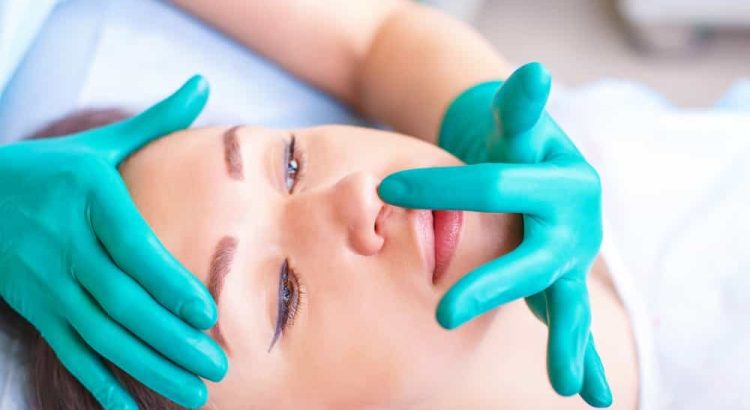Contents;
Preparing For Closed Rhinoplasty Surgery
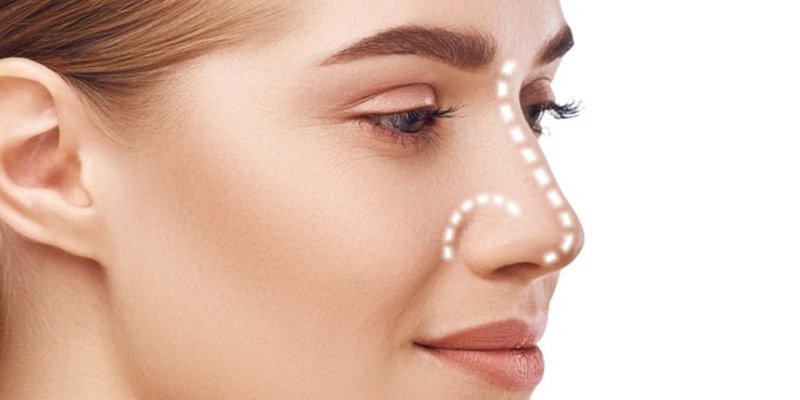
When considering closed rhinoplasty surgery, it is important to be well-prepared for the procedure. This type of surgery involves reshaping the nose without making any external incisions. It is less invasive compared to open rhinoplasty and has a shorter recovery period. To prepare for closed rhinoplasty, it is essential to schedule a consultation with a skilled and experienced plastic surgeon. During this consultation, they will assess your nasal structure and discuss your goals and expectations. They will also explain the surgical process and provide you with detailed instructions to follow before and after the surgery.
Before the closed rhinoplasty surgery, it is crucial to follow the surgeon’s pre-operative guidelines. These may include refraining from certain medications, such as blood-thinning drugs, to minimize the risk of bleeding during the procedure. It is important to inform your surgeon about any allergies or pre-existing medical conditions you may have. Additionally, quitting smoking and avoiding alcohol prior to the surgery can contribute to a smoother recovery process.
In the days leading up to the surgery, it is essential to take care of your overall health. Getting enough rest, staying hydrated, and eating a balanced diet can help optimize your body’s ability to heal. It is also advisable to arrange for someone to drive you home after the surgery and provide assistance during the initial stages of recovery.
Managing Pain And Discomfort After Closed Rhinoplasty Surgery
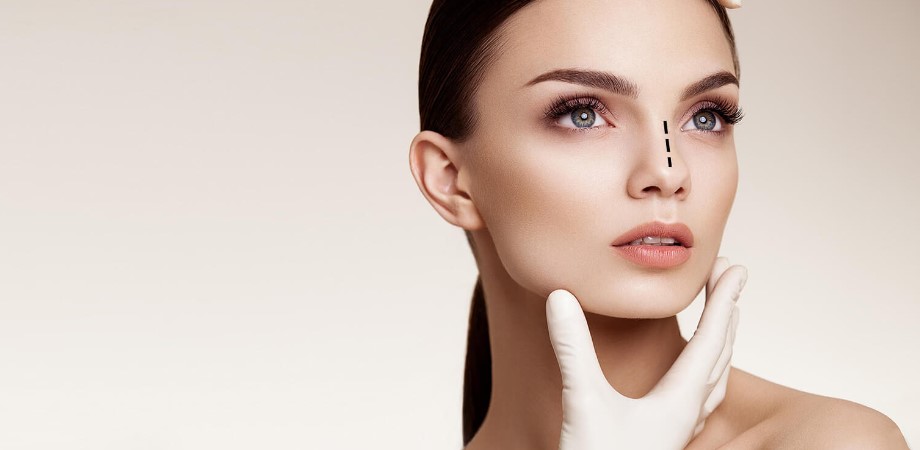
Undergoing a closed rhinoplasty surgery can be a life-changing experience, improving both the aesthetic appearance and functionality of your nose. However, like any surgical procedure, it is common to experience pain and discomfort during the recovery period. Managing these symptoms effectively is crucial in ensuring a smooth and successful healing process. In this blog post, we will discuss some strategies to help you cope with the pain and discomfort after closed rhinoplasty.
1. Take Pain Medication as Prescribed:
- Following the surgery, your surgeon will likely prescribe pain medication to manage the post-operative pain. It is essential to take this medication as instructed to effectively control your pain levels. Remember to follow the recommended dosage and frequency.
2. Apply Cold Compresses:
- Using cold compresses in the first few days after your closed rhinoplasty surgery can help reduce pain and swelling. Wrap some ice in a clean cloth and gently apply it to the surgical area for 10-15 minutes at a time. Be sure to keep the compress away from your incisions to prevent any infection.
3. Keep Your Head Elevated:
- Keeping your head elevated while sleeping or resting can help minimize swelling and discomfort. Try using an extra pillow or two to prop yourself up, ensuring your head is higher than your heart. This position helps reduce blood flow to the surgical area, reducing swelling and relieving pain.
4. Avoid Strenuous Activities:
- During the recovery period, it is vital to avoid any strenuous physical activities that can increase pain and prolong healing. Follow your surgeon’s instructions regarding the specific activities you should avoid, such as heavy lifting or intense exercise. Giving your body enough time to heal will help manage pain effectively.
| Tips to Manage Pain and Discomfort After Closed Rhinoplasty |
|---|
| Take pain medication as prescribed |
| Apply cold compresses |
| Keep your head elevated |
| Avoid strenuous activities |
By following these strategies and adhering to your surgeon’s instructions, you can effectively manage pain and discomfort after your closed rhinoplasty surgery. Remember that every individual’s recovery will vary, and it is crucial to consult with your surgeon if you have any concerns or experience severe pain that is not alleviated by recommended methods.
Caring For Your Nose During The Recovery Period
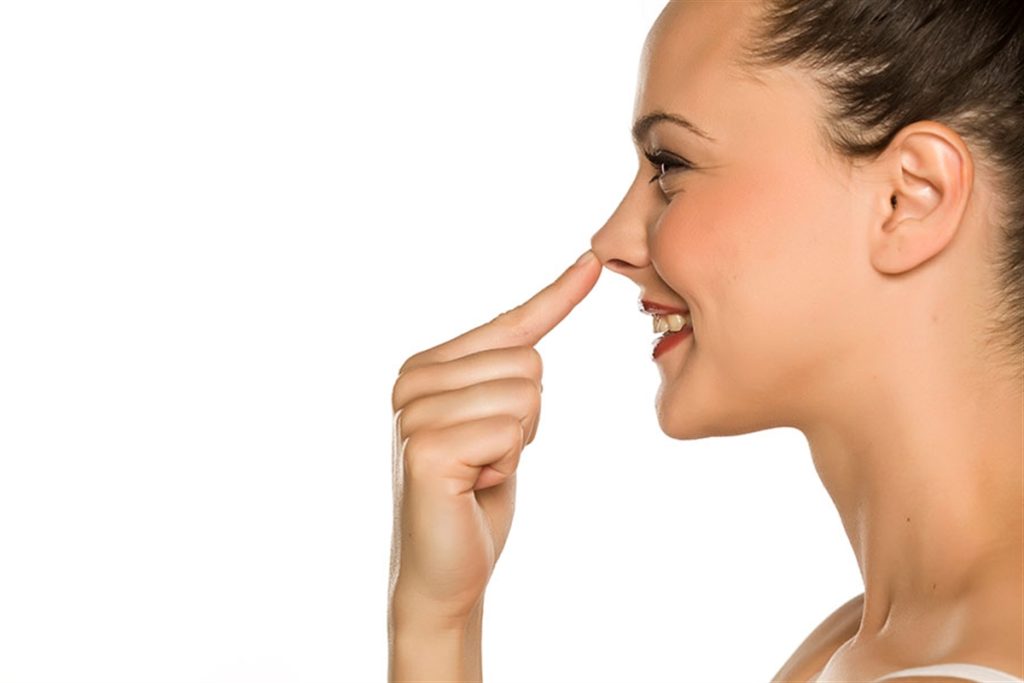
After undergoing closed rhinoplasty surgery, it is crucial to take proper care of your nose during the recovery period to ensure a smooth healing process. The nose is a delicate part of the face and following your surgeon’s instructions is essential for a successful recovery.
One important aspect of caring for your nose post-surgery is to keep the area clean. Your surgeon will provide you with specific instructions on how to clean your nose and may recommend using a saline solution or a nasal rinse. Cleanliness is crucial to prevent infection and promote healing.
In addition to keeping your nose clean, it is crucial to avoid any activities or habits that could potentially put stress on your nose during the recovery period. This includes avoiding strenuous exercises, wearing glasses that rest on the nose, or blowing your nose forcefully. These activities can disrupt the healing process and may lead to complications.
Furthermore, it is essential to protect your nose from accidental bumps or trauma. During the recovery period, it is advised to avoid contact sports or any activities that could result in an impact to the nose. Protecting your nose from trauma will help prevent further injury and promote healing.
The recovery period after closed rhinoplasty surgery can vary from person to person, and it is important to follow your surgeon’s instructions for a successful outcome. By keeping your nose clean, avoiding stress on the nose, and protecting it from trauma, you can ensure a smoother recovery and achieve the desired results of your surgery.
Managing Swelling And Bruising After Closed Rhinoplasty Surgery
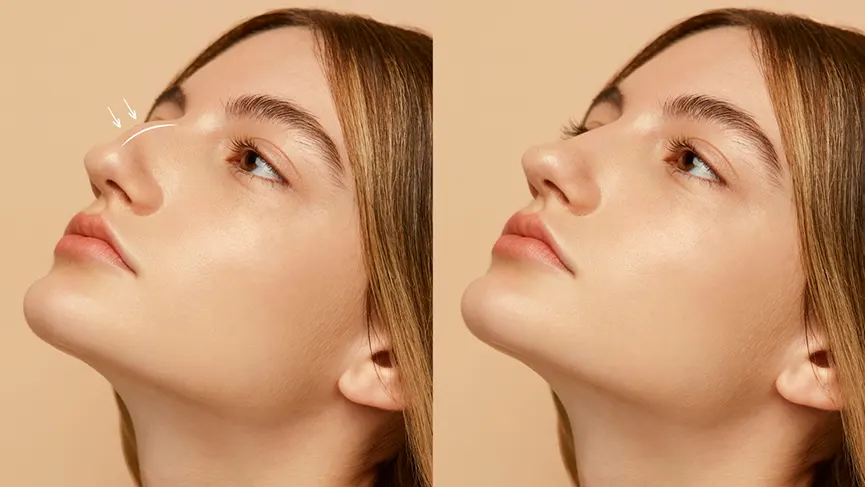
Managing swelling and bruising after closed rhinoplasty is an important aspect of the recovery process. Swelling and bruising are common side effects after any surgical procedure, including rhinoplasty. However, there are several measures that can be taken to minimize these effects and promote healing.
1. Keep your head elevated: It is crucial to keep your head elevated for the first few days after closed rhinoplasty surgery. This will help reduce swelling by preventing fluid accumulation in the facial tissues. Use extra pillows or a recliner chair to keep your head elevated while sleeping or resting.
2. Apply cold compresses: Applying cold compresses to the nose can help reduce both swelling and bruising. Use an ice pack or a bag of frozen peas wrapped in a cloth and gently apply it to the nose for 15-20 minutes at a time. Be careful not to apply too much pressure or directly on the skin to avoid damage.
3. Avoid strenuous activities: Engaging in strenuous activities can increase swelling and prolong the healing process. It is essential to avoid activities such as intense exercise, heavy lifting, or any activity that may strain your facial muscles. Follow your surgeon’s instructions regarding the time frame for resuming these activities.
| Things to Do | Things to Avoid |
|---|---|
|
|
|
|
|
|
4. Take prescribed medications: Depending on your surgeon’s recommendations, you may be prescribed medications to manage pain, discomfort, and swelling. It is crucial to follow the prescribed dosage and timing to ensure an optimal recovery and alleviate any potential complications.
5. Avoid exposure to direct sunlight: Protecting your nose from the sun is essential during the recovery period. Excessive sun exposure can worsen swelling and increase the risk of hyperpigmentation. Make sure to wear a broad-brimmed hat and apply sunscreen with a high SPF to any exposed areas of your face when going outside.
By following these tips and listening to your surgeon’s advice, you can help manage swelling and bruising after closed rhinoplasty. Remember to be patient as swelling and bruising are normal parts of the healing process. If you have any concerns or notice unusual symptoms, always consult with your surgeon for proper guidance and care.
Minimizing Scarring And Promoting Healing
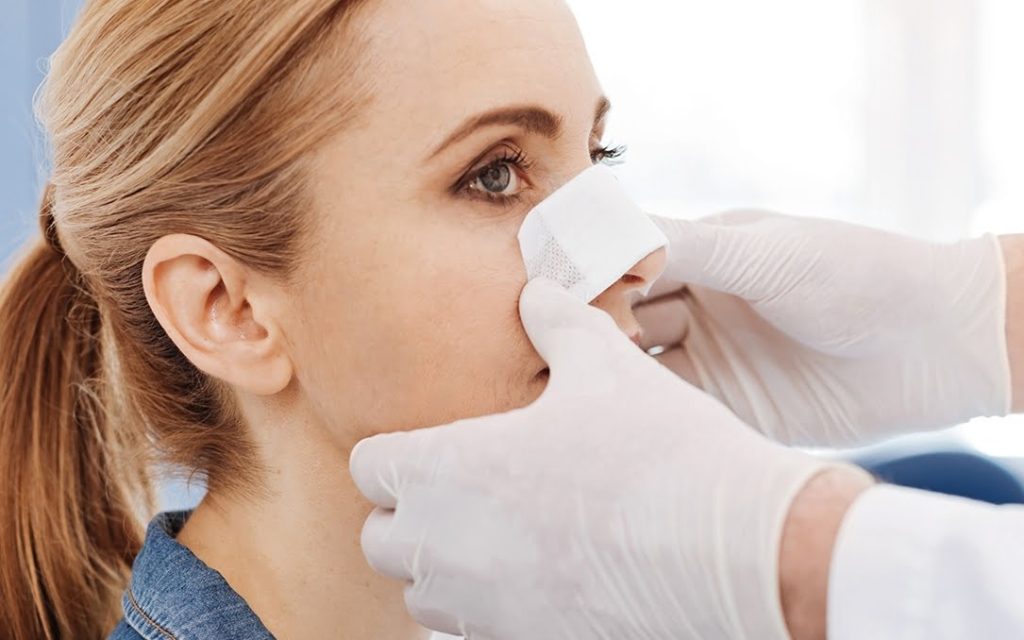
If you have recently undergone a closed rhinoplasty surgery, you may be wondering about ways to minimize scarring and promote healing. While it is normal to have some scarring after any surgical procedure, there are several steps you can take to help reduce its visibility and promote a speedy recovery.
Caring for the Incision site: After your closed rhinoplasty surgery, it is important to take proper care of the incision site to minimize scarring. Keep the area clean and dry, and follow your surgeon’s instructions for any dressings or ointments that need to be applied. Avoid picking at the scabs or scratching the area, as this can lead to increased scarring.
Protecting the Nose: It is crucial to protect your nose during the recovery period to prevent any additional damage or trauma that could result in more noticeable scarring. Avoid activities that may put pressure on your nose, such as wearing glasses or participating in contact sports, until your surgeon advises it is safe to do so.
Following a Healthy Lifestyle: Maintaining a healthy lifestyle can contribute to faster healing and minimized scarring. Eat a balanced diet rich in vitamins and minerals to provide your body with the necessary nutrients for optimal wound healing. Avoid smoking and excessive alcohol consumption, as they can impair the healing process and increase the risk of complications.
| List of Tips for Minimizing Scarring and Promoting Healing: |
|---|
| 1. Keep the incision site clean and dry. |
| 2. Follow your surgeon’s instructions for dressings and ointments. |
| 3. Avoid picking or scratching the scabs. |
| 4. Protect your nose from additional trauma or pressure. |
| 5. Follow a healthy lifestyle with a balanced diet. |
| 6. Quit smoking and limit alcohol consumption. |
While it is important to remember that scarring is a natural part of the healing process, these tips can help minimize its appearance and promote optimal healing after your closed rhinoplasty surgery. Remember to consult with your surgeon for personalized advice and follow their instructions for a successful recovery.
Resuming Normal Activities After Closed Rhinoplasty Surgery
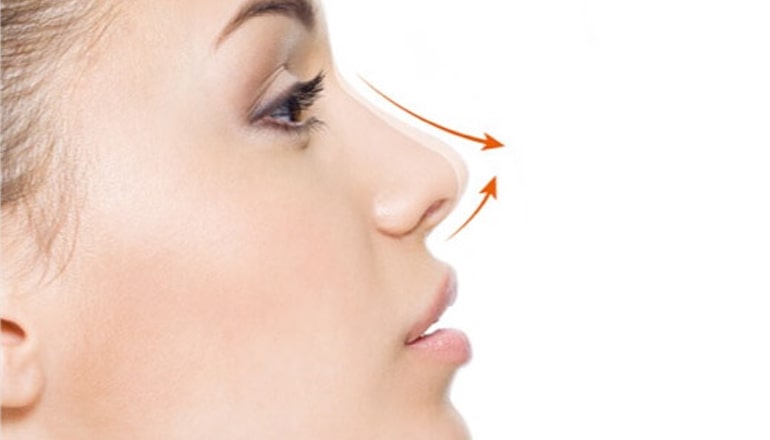
After undergoing a closed rhinoplasty surgery, it is important to give your body ample time to heal and recover. This means following your surgeon’s instructions and gradually resuming your normal activities. While it is natural to be excited to get back to your regular routine, it is essential to be patient and take things slowly to ensure a successful recovery.
One of the first things to keep in mind when resuming normal activities after closed rhinoplasty is to listen to your body. Even though you may feel physically capable of doing certain activities, it is crucial to pay attention to any discomfort or pain. It is common to experience mild swelling and bruising in the first few weeks after surgery, so it is best to avoid strenuous activities that could exacerbate these symptoms.
Another important factor to consider is avoiding any activities that could potentially injure your nose during the recovery period. Your nose will still be sensitive and vulnerable to trauma, so it is wise to avoid contact sports or any activities that involve a risk of being hit in the facial area. It is always better to be cautious and protect your nose until it is fully healed.
Following Your Surgeon’s Instructions For A Successful Recovery
Following your surgeon’s instructions is crucial for a successful recovery after a closed rhinoplasty surgery. The post-operative care and guidelines provided by your surgeon are designed to optimize healing, minimize complications, and ensure the best possible outcome. By following these instructions diligently, you can help speed up your recovery process and minimize any potential risks.
One of the most important instructions you will receive is to take prescribed medications as advised. Your surgeon may prescribe painkillers, antibiotics, and anti-inflammatory medications to manage pain, prevent infection, and reduce swelling. It is essential to take these medications exactly as prescribed and complete the full course, even if you start feeling better.
Another crucial aspect of post-operative care is keeping your nose and the surrounding area clean. Your surgeon will provide specific instructions on how to clean your incision site and may recommend saline solution or specialized products for cleansing. It is vital to follow these cleaning instructions meticulously to prevent infection and promote proper healing.
Closed Rhinoplasty Aesthetics All Details
Psychological Benefits of Nose Aesthetics
Rhinoplasty Surgery About
